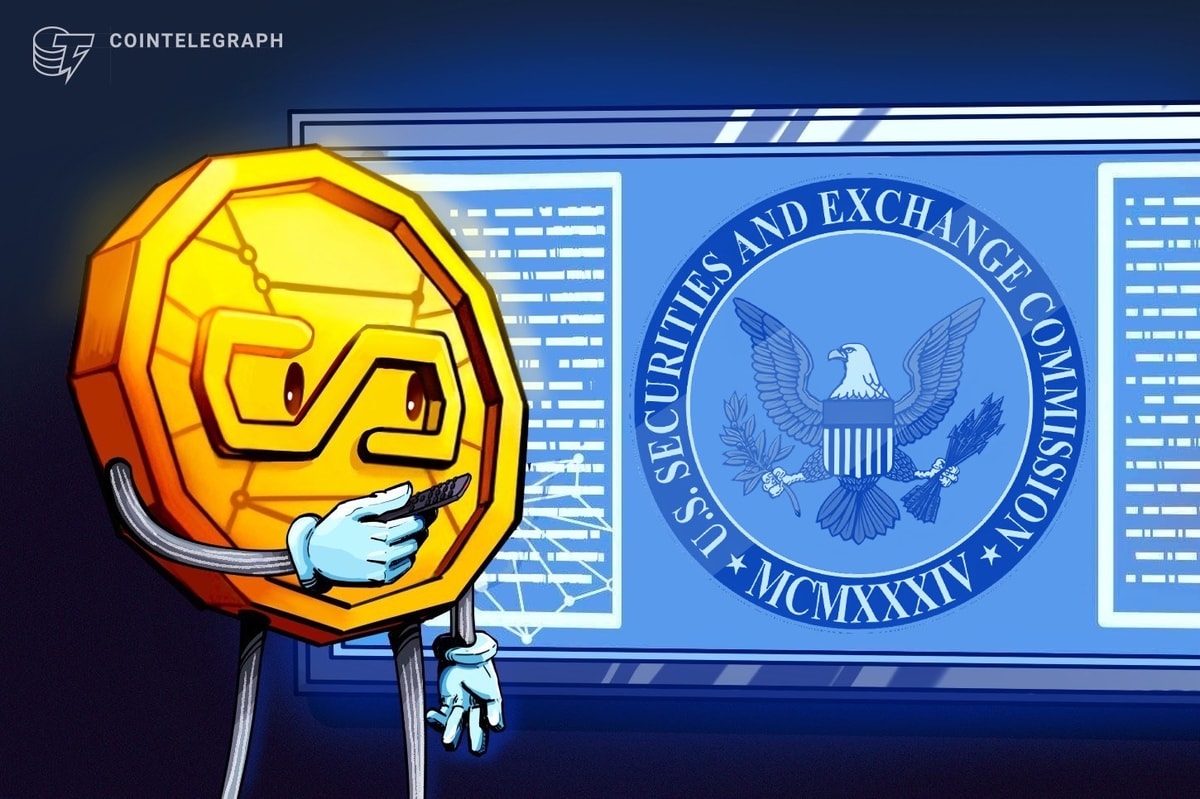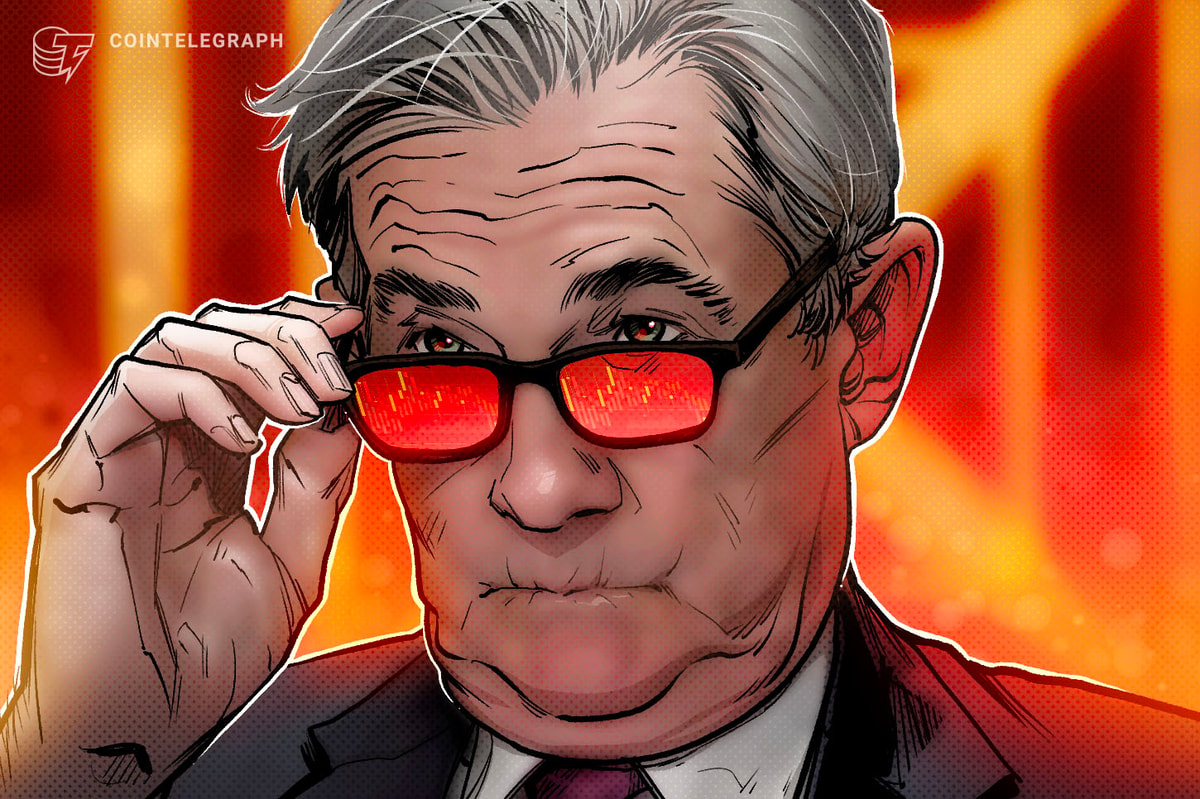Introduction
In 2021, we witnessed many developments in the regulatory landscape of the cryptocurrency sector, with authorities targeting stablecoins, decentralized finance (DeFi), nonfungible tokens (NFTs), crypto assets, smart contracts, unhosted wallets, central bank digital currencies (CBDCs) and so on. Still, most of these decentralized innovations remain in the gray zone of regulation globally, which only slows down the innovative impulse. With the rapid development of Web 3.0 and the Metaverse, the need for proper regulation — and the question of which must adapt, crypto to regulation or vise versa — is greater than ever. Yet, there is no time for consideration, as it is time to act.
To gain more insight on the matter, I reached out to different experts from the crypto and blockchain industry, asking them: “In your opinion, has the crypto space reached any milestones in 2021 in terms of regulation? And what do you expect from regulators in 2022?”
Alex Tapscott of Ninepoint Digital Assets Group
Alex is a writer, speaker, investor and adviser focused on the impact of emerging technologies such as blockchain and cryptocurrencies. He is the general manager of Ninepoint Digital Assets Group, an investment management services provider in the field of blockchain technology and cryptocurrency.
“2021 was the year blockchain and crypto became too big to ignore. I think regulators and governments are finally waking up to the potential of this technology. Sometimes, they take a negative view as we saw in China. But in general, there has been a shift toward honest and thoughtful engagement from lawmakers and regulators. For example, in Canada where I live, our securities regulator, the OSC, has been a pioneer, enabling a multi-billion crypto exchange-traded fund (ETF) industry.
In the United States, state and local lawmakers have embraced Bitcoin with open arms, seeing it as a job creator and an economic engine for their regions. Even at the central bank level, there's an openness to Bitcoin, stablecoins and other innovations. For the industry to continue to make strides, we must treat regulators and governments as key stakeholders and partners in moving this industry forward.”
Bill Hughes of ConsenSys
Bill is the senior counsel and director of global regulatory matters at ConsenSys, a global community of developers, business people, programmers, journalists, lawyers and others made to create and promote blockchain infrastructure and peer-to-peer applications.
“The significant change has been the increased attention of U.S. lawmakers and regulators. Many jurisdictions are ahead of the United States in terms of legislation and rulemaking, but where the U.S. lands on important policy issues — including fundamental questions of token taxonomy — will be impactful on crypto’s evolution. Attention has been both critical and supportive, which is a net positive for a space that reasonably expected the government's unified response would be “NO.” As lawmakers become more familiar with the technology and the possibilities it creates, apprehension about it will continue to dissipate. Remarkably, there are already a meaningful number of lawmakers (and their legislative staff) who understand the opportunities that will arise from the breakneck pace of innovation and are full-throated in their support for growth. In 2022, you will see increased legal clarity in the European Union and other prominent jurisdictions while the numbers of federal, state and local U.S. lawmakers who are supportive of and energized about crypto will continue to increase. Further clarity on U.S. securities regulation is also expected, but whether it is good news or bad news in industry eyes is difficult to handicap. Increasing adoption will continue to dissuade even the most hawkish regulators from trying to “crackdown.””
Chris Kalani of Phantom Wallet
Chris is the chief product officer of Phantom Wallet, a friendly Solana wallet built for DeFi and NFTs.
“Regulators are becoming much more savvy when it comes to the blockchain space. They have started to recognize the importance of staying ahead of or along with the pace of financial innovation if they don’t want to lose to other countries, maintaining a leading role in financial innovation.
They have become much more educated on the topic, as we have seen with the congressional hearings, and are trying to understand ways to integrate that within the current framework so that financial innovation won’t be stifled, but can be put in a position for growth.
Previously, people had no idea what was going on and thought blockchain was a fad, similar to the internet. It’s become much more of a conversation than viewing the industry as something adversarial to the existing establishment.”
Denelle Dixon of Stellar Development Foundation
Denelle is the CEO and executive director of Stellar Development Foundation, a nonprofit organization that supports the development and growth of Stellar.
“I think we’ve turned a corner on engagement from policymakers. It was heartening to see how inquisitive and informed many representatives were at December’s HFSC hearing, asking questions in good faith to learn more about the technology and value blockchain provides. I don’t think we could’ve gotten here without all the industry advocacy we’ve seen this year and support from the incredibly vocal crypto community. There are many, many more conversations to be had to help make sure innovation continues in the U.S. Let’s take this momentum into 2022.”
James MacFarlane of Eden Network
James is the head of business development at Eden Network, an optional, non-consensus-breaking transaction-ordering protocol for Ethereum blocks.
“We have seen regulators more actively looking at the crypto and decentralized finance space. It is clear that they are still trying to understand the fundamentals of the value and risks these areas create for them.
Western regulators seem to be taking a relatively measured approach so far in order to try and harness the value this could generate for them in both a relevance and taxation perspective which is as expected. With the United Kingdom even putting further taxation guidance out for cryptocurrency and DeFi.
The typical time frames for these regulatory bodies will be one year of research, followed by the publishing of findings and suggested next steps, which then ultimately will mold the codes of practice that end up being published.
In 2022, we expect to see more definite opinions from these regulators, which will really give us a solid idea of the roadmap of rules they are working towards. It is apparent how much the decentralized finance and cryptocurrency markets could be worth to them if they take a balanced view to foster innovation. The expectation is regulators will embrace these areas given the level of value it can create for each country and consumers within them.”
Johnny Lyu of KuCoin
Johnny is the CEO of KuCoin, a secure cryptocurrency exchange that makes it easier to buy, sell and store cryptocurrencies.
“Previously, the rhetoric of the regulators on cryptocurrencies was extremely negative and had a restrictive tone. They kept thinking only about how to prohibit all these coins, initial coin offerings (ICOs), advertisements, etc. The past year has shown that the restrictive approach led the regulators of many countries to a dead-end. Now they are beginning to think differently: “Okay, how do we make the cryptocurrency market civilized and safe for everyone?” And regulators around the world began to think about regulation, not bans. This is the main change in 2021 in matters of cryptocurrency regulation.
Code is a law and there is no better regulation than smart contracts. From year to year, this becomes more and more evident. It is necessary to educate the population, increase personal responsibility and suppress criminal activity, without infringing on the rights of law-abiding users. This will be the direction of progress in 2022.”
Martha Reyes of Bequant
Martha is the head of research at Bequant, a digital asset exchange and prime broker.
“The digital asset space became too big for authorities to ignore: China’s mining ban caused ripples in the industry, which may have, in turn, led to other nations increasing their friendliness to crypto. For example, the U.S. has made extraordinary progress in the last 12 months, arguably more than anyone would have predicted at the beginning of 2021. Though we still don’t have a formal framework in place, they will not ban cryptocurrencies as some have feared and even approved a future BTC ETF this year. A spot ETF will happen, potentially in 2022.
In Europe, Switzerland has reaped the benefits of being a regulated jurisdiction for crypto firms. This is putting pressure on the E.U. to embrace a position, giving greater clarity to consumers, investors and firms alike. In 2022, this is only likely to increase in pace. Too many regulators have seen the benefits of crypto and blockchain and recognize the need for clarity. There is still very much a first-mover advantage, meaning any country that puts its weight behind a robust regulatory environment could attract investment and talent. In 2022, we should see more clarity around regulation in the U.S. and other nations, and perhaps more international coordination, which should open the door to more institutional adoption.”
Michelle Bond of the Association for Digital Asset Markets
Michelle is the CEO of the Association for Digital Asset Markets, which works in partnership with financial firms and regulatory experts to devise a code of conduct for digital asset markets.
“2021 was the year Washington woke up to the digital assets industry. The year started with the rushed FinCEN “Unhosted Wallets” proposal, which the industry was able to voice its concerns and delay. At the same time, pro-digital asset Senator Cynthia Lummis joined the Senate.
As the Biden Administration got up to speed on digital assets, it seemed like all of Washington was studying the industry in some shape or form. Then came the Infrastructure Bill, which contained a rushed provision defining a broker for tax reporting purposes. This flawed language unleashed digital asset supporters from all segments of U.S. society and made it clear that policymakers and regulators need to act carefully and consider innovation as a key pillar of their decisions.
The year culminated on a highly positive note with the early December crypto CEOs hearing in front of the House Financial Services Committee. Lawmakers were surprisingly warm to all participants and were genuinely interested in the innovation benefits that can be harnessed in Web 3.0. The hearing went a long way to legitimizing crypto in DC, similar to how bank CEOs appear in front of Congress on a yearly basis.
Looking to 2022, lawmakers are starting to realize the long term benefits this industry can provide to the United States, and this, combined with the Biden administration being in office for a year, now presents a real window to get something done on a bipartisan basis to advance the industry and provide guardrails for market integrity and consumer protection. I expect to see a responsible public policy framework developed, from which the industry can flourish and the U.S. can benefit.”
Ray Youssef of Paxful
Ray is the CEO of Paxful, a global people-powered platform for buying, selling and trading digital currencies.
“In 2021, El Salvador became the first country to make Bitcoin a legal tender while the crypto industry hit a market cap of $3 trillion. These are both testaments to the strength of a people-powered product where everyone has equal access to finance no matter who they are, where they are or what regulations may be in place.
We do believe that regulation will continue to tighten globally. Calls for the regulation of digital currencies are growing with more governments expected to formulate enabling regulations, and rightfully so as we see rapid growth in the Bitcoin global economy. However, in the U.S., we are witnessing new openings and pathways to entry for an entirely new generation of Bitcoiners. Honest money will prevail. Bitcoin and other digital currencies are nipping at the heels of traditional finance and fiat. Yes — we’ll continue to see the industry navigate U.S. regulation (which is some of the strongest in the world) but digital currencies will be the future of finance.”
Sameep Singhania of QuickSwap
Sameep is the founder of QuickSwap, a decentralized exchange on Polygon that allows users to swap, earn, stack yields, lend, borrow and leverage all on one decentralized, community-driven platform.
“I learned a long time ago not to speculate about what regulators will do next. That said, we have seen a lot of advancement in regulation this year. For instance, India proposed a bill that would make private cryptocurrencies illegal, while that’s still more regulation than many would like, it’s a far cry from their attempt to ban all cryptocurrencies in 2018–2019. In my opinion, this shift represents an increased understanding about crypto’s underlying blockchain technology and about governments’ powerlessness to stop it.”
Tim Draper of Draper Associates and Draper Fisher Jurvetson
Tim is a pioneer of business ventures in the United States and a co-founder of Draper Fisher Jurvetson, a leading investment firm in early-stage tech startups.
“I expect the best regulators to embrace the new technology and innovation that comes with it. I expect the worst regulators to try to block it. Bill Clinton was smart to just let the internet run and see what happened. That brought in huge economic value to America. The countries that use a light touch or no touch governance will be the big winners over the next 40 years. Those that overregulate, do so at their own peril.”
These quotes have been edited and condensed.
The views, thoughts and opinions expressed here are the authors’ alone and do not necessarily reflect or represent the views and opinions of Cointelegraph.











